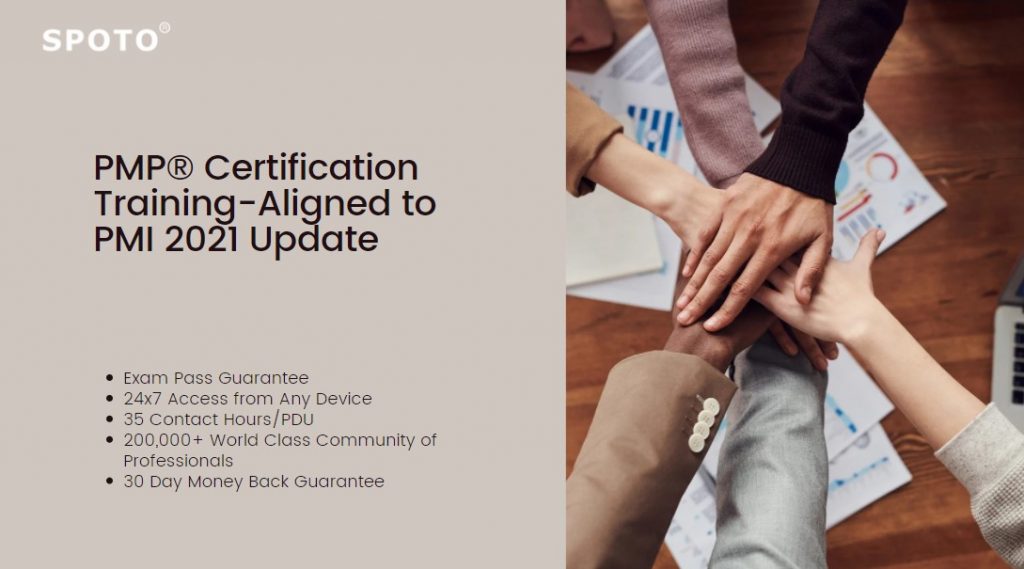So you didn’t pass the PMP® Exam. So, what happens now? Discover how to avoid a disastrous retake of the PMP® Exam.
Preparing for a PMP® Certification exam can be both a burden on our cognitive functioning and a nerve-racking challenge that can disrupt our minds. Remembering formulas and grasping concepts are more difficult than they appear. You may have forgotten the art of exam preparation if you have been out of school for several years.
Uncertainty about the content of the examination can also cause you to pause. Hours of active studying, weeks of endless practice, and days of sheer perseverance can all be for naught if you become completely blank on the day of the exam – and this can be extremely frustrating.
That is exactly what happens to so many aspiring project managers, and it goes without saying that they are devastated because they failed the exam for which they worked so hard. Unfortunately, this frequently leads to some of them losing hope – or, worse, giving up on their dreams entirely. Some regret the haste with which they took the exam before the pattern changed, while others regret putting too much or too little emphasis on the mathematical aspects of the PMP® exam.
But, as we all know, regretting is counterproductive. What you must do is try again. Don’t stop now, because the gap could disrupt your momentum and erode your current knowledge of the material if you don’t continue studying.
So, what should you do to ensure that your retake is a success? We’ll give you three straightforward, reliable mantras.
#1 – “I Will Not Rely Solely on the Pmbok® Guide.”
The nature and quality of the study material influence the outcome (whether success or failure). While the PMBOK® Guide is your primary resource, you must also look at active participation and meticulous practice.
Read books: Books are your best friends when it comes to studying for professional exams. Books are the culmination of the efforts of a large number of experts and domain specialists from all over the world, and they represent the entire current, up-to-date body of knowledge compiled from various experts. Books, as paid content, provide distilled professional advice and key principles.
Make the most of the resources at your disposal: There are numerous PMP® exam resources available to help you ace the, as we discussed in one of our previous articles.
Participate in workshops: Consider yourself a typical Project Management nerd. Keep an eye out for webinars that you can attend, and join as many discussion forums as you can. Even if you have to retake the PMP® exam, exchanging ideas can help you in ways you never imagined.
Perfection requires practice: In your previous attempt, you might have practiced several times. However, you may have missed out on implementing best practices and gaining important insights. You must achieve a score of 85 percent or higher on each practice test, and you must master at least four of the six domains. Only then will you be completely prepared for the big day.
#2 – “I Will Not Study In a Hasty Manner.”
As you may have learned in school, having a plan and a schedule for everything you do not only adds discipline to your daily life, but it also helps you perform better in every task. To pass the PMP® exam, there are numerous study plans and schedules available. Determine your strengths and weaknesses, and then devise a strategy centered on the areas that require the most attention.
Here are a few things to consider when creating a study schedule.
Refresh your knowledge in the following areas: Are you certain in a few areas? Do you believe you’ve aced them? Even so, you should brush up on your knowledge before the next try. You can, however, devote less time to these areas in order to devote more time to your weaknesses.
Take into account professional education: There is no substitute for professional training, whether you are a seasoned, experienced Project Manager or a wide-eyed aspirant just getting started. Popular professional PMP® courses that prepare you for the PMP® certification exam provide hundreds of hours of rigorous coaching from industry experts as well as exposure to live industry projects, allowing you to master Project Management.
Make your flaws stronger: Instead of being afraid of your flaws and shortcomings, work hard and smart so that you can easily transform them. Of course, mastering those subject areas may be unrealistic, but you can still try! What matters is that you pass the time and put in enough effort until your flaws no longer frighten you.

Adhere to the question format: PMPro discovered that PMP® questions are assigned based on how much time a project manager typically devotes to each phase of the project lifecycle:
13 percent start-up
Execution: 30% Planning: 24%
25% of the time is spent on monitoring and control.
8% of the time has passed since the transaction was finalized.
Include breaks in your schedule: You do not have to work 24 hours a day, seven days a week as a member of our customer service team! Make sure your study schedule is intense but not exhausting. The last thing you want is to be mentally exhausted, which can lead to a lot of forgetting. Don’t squander your time and energy.
“I will breathe,” says #3.
That’s right, you read correctly. Aspiring project managers frequently forget to take deep breaths. The pressure is too much to bear, and the stress is at its peak. You may lose sleep, and if you do sleep, you may be jolted awake by a nightmare about failure. This may cause you to skip meals, work until the wee hours of the morning, avoid social gatherings, and avoid any leisurely activity. Be gentle with yourself.
Here Are Some Relaxation Techniques to Try
Take a few deep breaths: This technique will help you understand the mantra. Short, quick breaths increase nervousness while deep breaths calm the mind and bring a new awareness to the mind and body.
Skeptics may object because meditation necessitates total mental silence. It, on the other hand, revitalizes the senses and clears the mind of unnecessary thoughts, resetting you to study.
Give yourself some love: Refresh your skin by going to salons and spas. Massages promote healthy blood circulation, thereby relaxing both the mind and the body!
Develop a social life that is active: Jack becomes a dull boy when he spends all of his time working and not having any fun. That’s not just a cliched proverb; it’s the absolute truth. Don’t put yourself through too much. Take breaks and socialize with others.
Eat well and sleep well: Good eating and sleeping habits are essential not only before the exam but also throughout the learning and preparation process. Eat light but nutritious meals, and get as much sleep as you need.
That’s pretty much it. What went wrong? Do you have any additional recommendations? Please share your thoughts in the comments section below!





